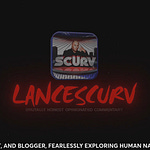In an age where the word victim is often used without scrutiny, it’s important—now more than ever—to differentiate between actual coercion and conscious participation. The recent court case involving Cassie Ventura and Sean “P. Diddy” Combs has reignited discussions around power, consent, and accountability in intimate relationships. But beneath the headlines and emotionally charged reactions lies a more complex truth: Cassie was not merely a victim; she was also a willing participant in much of what transpired.
This assertion isn’t made to minimize real abuse—far from it. Abuse, manipulation, and trauma are very real, and survivors deserve unwavering support. However, it becomes problematic when every controversial relationship is painted with the same broad brush, especially when one’s actions contradict the narrative of victimhood. My dear friend, Madamwhipass, who spoke passionately in our recent video unpacked this with clarity: Cassie wasn’t forced into a hidden world of darkness—she entered, stayed, and even thrived in it for years, often participating in ways that went above and beyond what was ever requested of her.
Let’s be honest: in the realm of celebrity culture, fame and access come with their own set of currencies—sex, secrecy, power, and loyalty. Cassie, like many young women entering that world, knew the game. She wasn’t a naïve teenager plucked from obscurity; she was a grown woman who made choices—calculated ones—that kept her in proximity to power and wealth. She traveled the world, enjoyed luxurious living, and moved in elite circles. This doesn’t mean she wasn’t subjected to pressure or influence—but it does mean we must look honestly at her level of agency.
Many of the acts she now recounts as traumatic were, at the time, done willingly—and in some cases, enthusiastically. This is not a matter of hearsay; it’s a matter of her own timeline and behaviors. And while people are allowed to reinterpret their pasts through new emotional lenses, that reinterpretation doesn’t erase the reality of their participation.
What does this mean for the broader conversation? It means we have to mature as a society in how we evaluate victimhood. When everything is abuse, nothing is abuse. When every woman in a high-profile relationship claims victimhood without clear evidence of coercion, it weakens the voices of those who had no choice, no way out, and no support. It also denies women their power—the power of owning their decisions, both wise and unwise.
Cassie’s story is not one of black-and-white abuse. It is a story woven with personal decisions, desires, ambitions, and, yes, consequences. To portray her as helpless is to strip her of the autonomy she clearly had. And while P. Diddy may have had his demons, we must not overlook the ways in which Cassie—and others like her—contributed to and benefited from the very dynamics they later decry.
In closing, this case is not just about two individuals. It’s about how we, as a culture, define responsibility. It’s about understanding that victimhood isn’t always the absence of consent, and that silence—or even pleasure—doesn’t always equate to oppression. It’s time we grow up in how we process celebrity, power, and personal choice.












